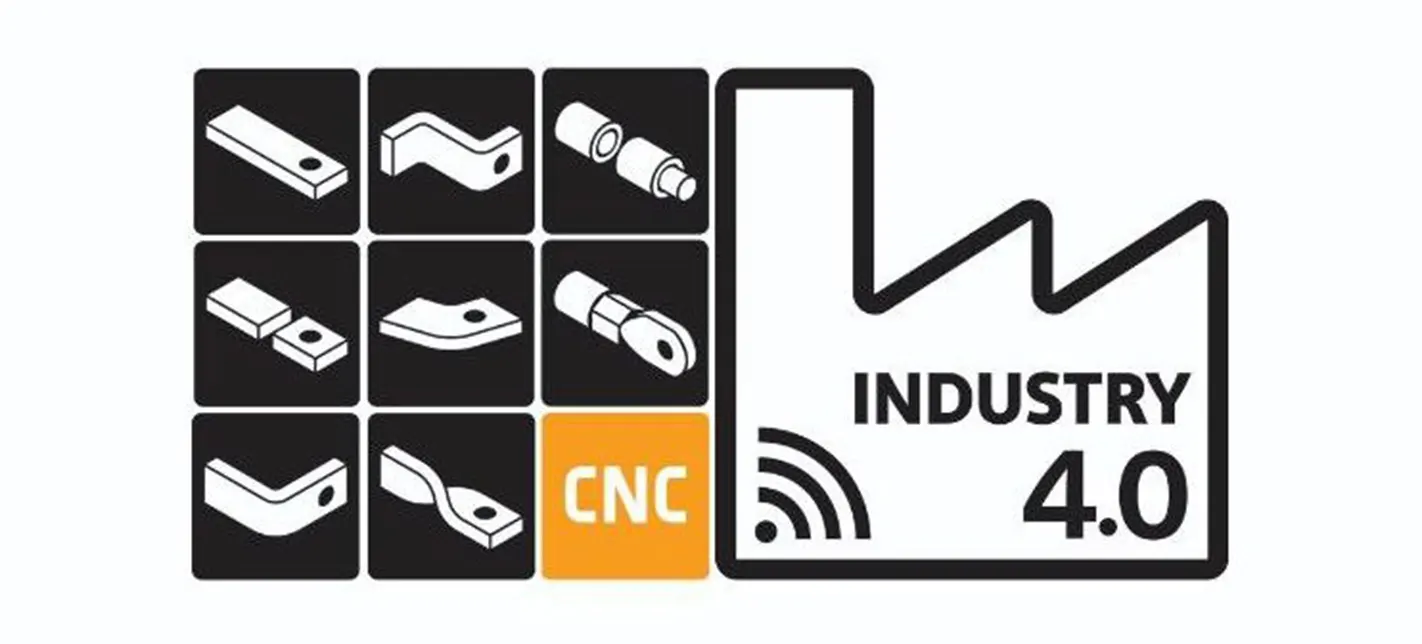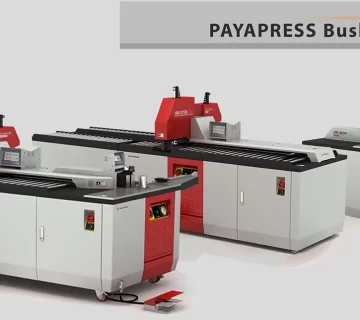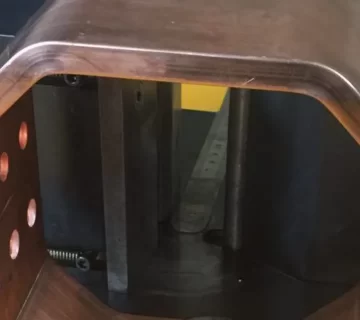The dawn of the fourth industrial revolution, commonly referred to as Industry 4.0, has ushered in a paradigm shift in the manufacturing landscape. This era is defined by a convergence of cutting-edge technologies – automation, data exchange, cyber-physical systems, and more – that are fundamentally reshaping the way goods are produced. While Industry 4.0 is undeniably focused on maximizing efficiency and productivity, it also carries a profound commitment to sustainability and environmentally sound manufacturing practices.
The Rise of Automated Machinery and Its Impact on Sustainability
At the heart of Industry 4.0’s sustainability drive is the integration of automated machinery. Technologies such as bus bar bending machines, automatic punching machines, and CNC busbar processing machines are leading the charge, optimizing resource utilization and minimizing waste generation.
Hydraulic busbar bending machines are a prime example of how automation can significantly enhance sustainability efforts. These machines utilize hydraulic systems to bend busbars with incredible precision, eliminating the need for manual adjustments and reducing material waste. Moreover, the hydraulic systems themselves are designed for energy efficiency, further minimizing the environmental footprint of the manufacturing process. Similarly, automatic punching machines offer a sustainable alternative to traditional manual sheet metal punch machines. These automated systems can punch holes in sheet metal with remarkable speed and accuracy, minimizing material waste and maximizing output.
The integration of CNC (Computer Numerical Control) technology has further revolutionized the sustainability of busbar processing machines. CNC busbar punching machines and CNC bus bar cutting machines leverage sophisticated software to optimize cutting and punching patterns, ensuring minimal material waste and maximizing resource utilization. This level of precision is crucial for industries that rely heavily on busbars, such as electrical power distribution and manufacturing.
The Synergy of Industry 4.0 Technologies and Sustainable Manufacturing
Industry 4.0 extends beyond automated machinery, encompassing a suite of interconnected technologies that work synergistically to promote sustainable manufacturing practices. Artificial Intelligence (AI), the Internet of Things (IoT), and Big Data analytics are just a few examples of these interconnected technologies.
AI-powered systems are increasingly being integrated into busbar bending machines and other automated equipment, enabling real-time adjustments based on data analysis. This data-driven approach optimizes material usage, reduces energy consumption, and minimizes waste generation. IoT sensors embedded within machines and throughout the factory floor provide a constant stream of data on energy usage, production output, and material flow. This data is then analyzed using Big Data analytics to identify areas for improvement and optimize processes for maximum sustainability.
The implementation of CNC punch and CNC punching technologies in busbar machines exemplifies the precision and efficiency that Industry 4.0 brings to manufacturing. These technologies ensure that every piece produced meets stringent quality standards while minimizing material waste. This focus on quality translates into products with longer lifespans, reducing the need for frequent replacements and ultimately minimizing environmental impact.
Economic Advantages of Embracing Sustainable Manufacturing
While the environmental benefits of Industry 4.0 technologies are undeniable, the economic advantages are equally compelling. By reducing material waste and energy consumption, manufacturers can achieve significant cost savings and enhance their bottom line.
Busbar bending machines that leverage AI and data analytics can optimize the use of raw materials such as copper and aluminum, leading to substantial cost reductions. Similarly, the energy efficiency of hydraulic busbar bending machines translates into lower energy bills and reduced operational costs. These cost savings can then be reinvested in further sustainability initiatives, creating a virtuous cycle of economic and environmental benefits.
Moreover, adopting sustainable manufacturing practices enhances a company’s brand reputation and fosters consumer trust. In today’s marketplace, consumers are increasingly conscious of the environmental impact of the products they purchase. Companies that demonstrate a commitment to sustainability through the use of technologies like busbar fabrication machines and portable hydraulic busbar bending machines are more likely to attract environmentally conscious consumers and gain a competitive edge.
The Future of Sustainable Manufacturing in the Age of Automation
The journey towards sustainable manufacturing is an ongoing process, and Industry 4.0 is continuously evolving to meet the challenges of a rapidly changing world. The future of sustainable manufacturing is likely to be shaped by further advancements in automation, data analytics, and the integration of renewable energy sources.
One promising area of development is the emergence of 3 in 1 busbar machines. These versatile machines combine cutting, punching, and bending capabilities into a single unit, maximizing efficiency and minimizing the need for multiple machines. The development of electric busbar price lists and the increasing affordability of electric busbar machines are making these sustainable technologies more accessible to a wider range of manufacturers.
The future of sustainable manufacturing will also likely involve a greater emphasis on closed-loop systems, where waste materials are recycled and reused within the production process. This circular approach to manufacturing minimizes environmental impact and conserves valuable resources. The potential for busbar cutting, punching, and bending machines to operate on renewable energy sources is another exciting prospect that could further reduce the carbon footprint of manufacturing operations.
Conclusion
The transition to Industry 4.0 presents a unique opportunity for the manufacturing sector to embrace sustainability as a core principle. By adopting technologies like busbar bending machines, automatic punching machines, and other advanced systems, manufacturers are not only enhancing efficiency and productivity but are also making significant contributions to environmental protection.
As automation continues to advance, the focus on sustainable practices will only intensify, driving innovation and encouraging the adoption of technologies that support both economic growth and environmental well-being. The journey towards sustainable manufacturing is a complex and multifaceted one, but with the tools and technologies provided by Industry 4.0, it is a journey that is well within reach. Manufacturers who invest in these technologies are paving the way for a future where industrial progress and environmental responsibility go hand in hand.
Payapress linkedin : https://www.linkedin.com/company/payapress




No comment